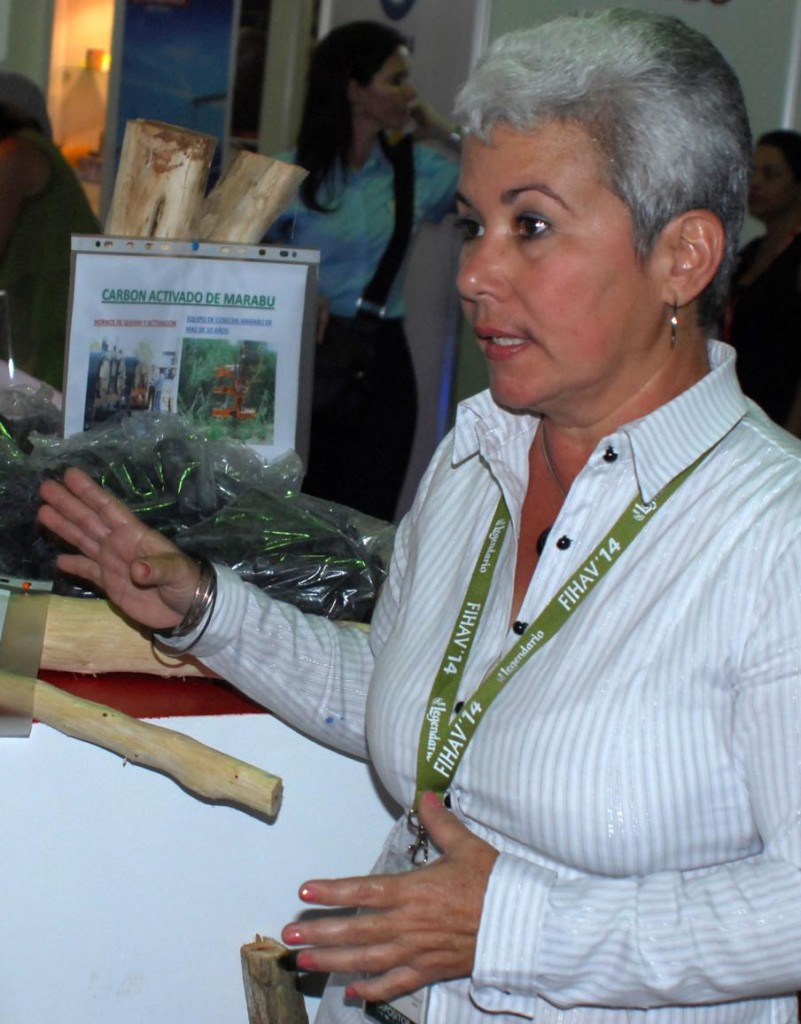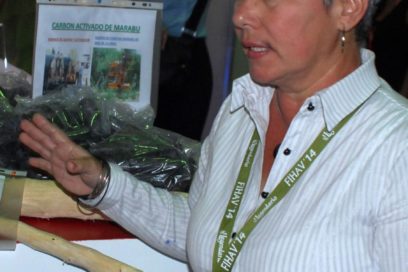
The International Fair of Havana (Fihav), permits every year to follow the evolution of some of the businesses carried out in these areas. An example of this could be Bio-Power, a joint venture (exporter and importer) which uses Cuban and British currency, is generating electric energy from vegetable bio-mass from the bagasse during the sugarcane harvest and as soon it ends, they use marabou.
Azucuba is the main company of the Cuban sugarcane industry, which promotes the construction of 19 bio-electrical engines in the country, all of them joined to the plants to fabricate sugar, said to Trabajadores newspaper Carmen Taboada Hernandez, deputy president of Bio-Power. “The most advanced of all are the CAI Jesus Rabi, from Matanzas with governmental financing and foreign suppliers, and ours, pioneer in joint venture modality of enterprise, founded by the end of 2012. They are part of the marketing Cuban society Zerus, from Azcuba and the British HavanaEnergyLtd.”
The first purpose of the build a generating plant of 60 mw every day, next to the Agricultural-Industrial Complex (CAI) Ciro Redondo, in Ciego de Avila- said Taboada who was before the principal specialist of the technical group in the production of sugar.
Recently, the General Electric bought the 80 percent of the French enterprise which whom we had established the designs and key projects. That has represented a setback, because we already know what the blockade imposed by the United States against Cuba means. Nevertheless, the foreign investor, has among his responsibilities, the search of finance; he evaluates other suppliers, the construction and start the job.
It was not a coincidence the selection of CAI Ciro Redondo, from the geographical point of view; it is strategically located; it counts with good basins of water; important sugarcane zones and it is fenced in a radio of about 30 kilometers by marabou.
From Bio-Power we have investigated the spreading of marabou in Cuba –Carmen said-, the Agriculture Forest Investigation Institute has also studied the density of those trees in view to be processed by agriculture and sale it as bio-mass to the bio-power engines projected by Azcuba.
So far, we pretend to end with the plague – she says-, because taking into consideration the life cycle of the specimen, it is not good to permit it grow again. We have suggested that once we cut the marabou, at least those lands from the Ministry of Agriculture, should be for forestall projects with specimens like eucalyptus which in three years it becomes adult and a high caloric power.
Several enterprises are buying machineries to process marabou. We have tested those imported by the foreign investor. In few months we will decide which is the ideal and we will later establish the adequate logistics to start the first bio-power engine that will consume 1,200 tones of marabou splintered every day.
Also Activated Charcoal
Meanwhile, we build the bio-power engine, Bio-Power discovered a second and rentable purpose: the fabrication of activated charcoal from marabou and with for exportation. It is the first enterprise that can do so from Cuba and they are also working to satisfy the domestic demand.
Activated charcoal is a very used product to retain the gasses and substances that transfer color, smell and taste in liquids. It is used to refine sugar and rums, in mining, metallurgic, security equipments, medicine, cooling equipments and more. Its main virtue is the capacity of absorption from its porosity.
This charcoal can be activated thanks to the chemical or physical action. Bio-Power sues this last modality by means of the heat and the injection of vapor. “We are planning the purchase of ovens with greater capacities and better technology. At present, in 8 or 12 hours, with more than 750-800 grades of temperature, we produce between 300 and 400 tones of activated charcoal that have had an excellent acceptance in the United Kingdom.”
Carmen, who in just a few months have changed the quiet routine of this village from Ciego de Avila, due to the rushes and tensions of the industrial innovation and the foreign investment, said how much has extended, among the Cuban businessmen, the environmental commitments:
“As a country, we have a lot of power, but there is also a lot to learn. I have participated in the last editions of the Fairs. We appreciate the need to invest in renewable energies, although they are very expensive in building and maintenance. The new law for foreign investment gives possibilities and Cuban enterprises have to become real guarantors of that financing. If I have a capital eagerly to reproduce, I will invest in agriculture and sugar industry, the last one, was always the first industry in Cuba, and if we exploit it well, it could be like that again.”


